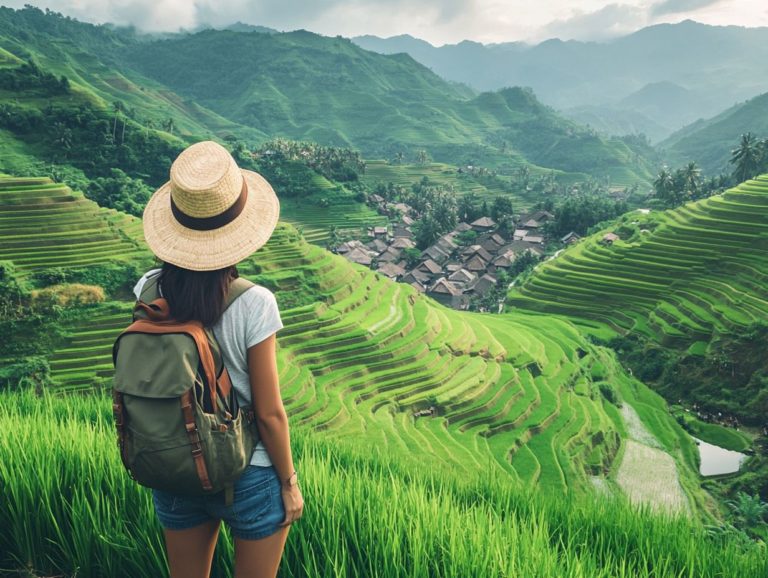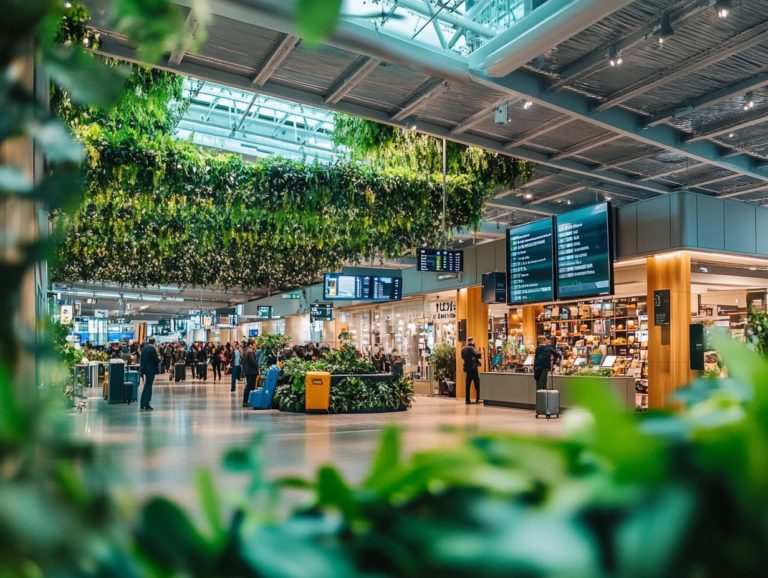The Power of Ethical Travel Photography
Travel photography possesses an extraordinary ability to bridge connections between people and cultures. However, it also comes with significant responsibilities.
As you capture the world s beauty, it s vital to reflect on the impact your images have on local communities. This article delves into the principles of ethical travel photography, emphasizing responsible practices and the importance of building genuine relationships with your subjects. It also explores the influential role of social media in shaping perceptions.
By embracing these principles, you can wield your lens as a tool for positive change. This fosters a richer understanding of the places you explore.
Contents
- Key Takeaways:
- The Importance of Ethical Travel Photography
- Responsible Photography Practices
- Building Relationships with Subjects
- The Role of Social Media in Ethical Travel Photography
- Addressing Controversial Topics in Travel Photography
- Promoting Positive Change through Photography
- Frequently Asked Questions
- How does ethical travel photography change our view of the world?
- Why is it important to practice ethical travel photography?
- What are some key principles of ethical travel photography?
- How can ethical travel photography make a positive impact?
- What are some common ethical issues in travel photography?
- How can I be a more ethical travel photographer?
Key Takeaways:
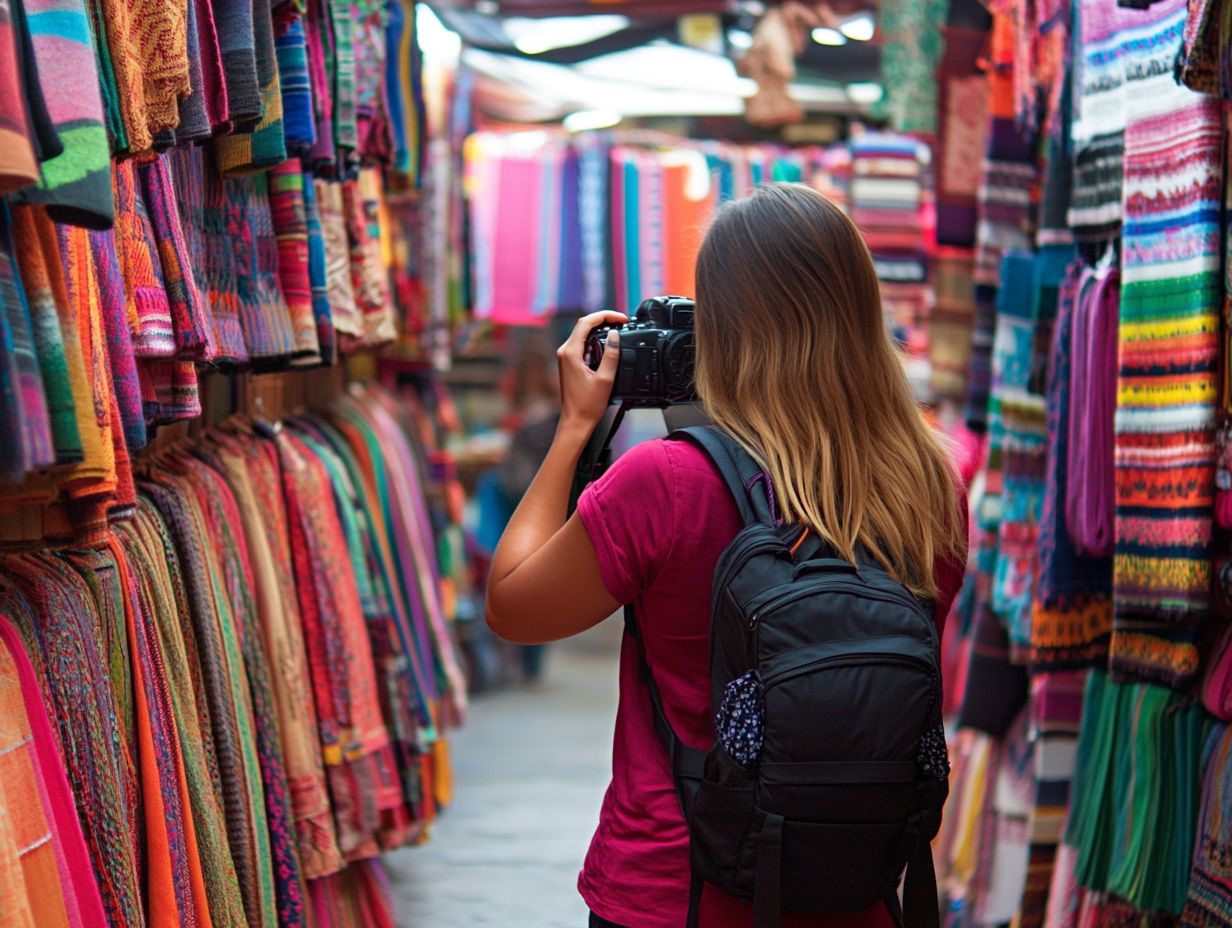
- Ethical travel photography significantly impacts local communities and their perceptions.
- Responsible photography practices, such as following guidelines and building relationships with subjects, are crucial for creating authentic and respectful images.
- Social media can be a powerful tool for promoting positive change through travel photography, but it must be used responsibly and sensitively, especially when addressing controversial topics.
The Importance of Ethical Travel Photography
Ethical travel photography is essential for building understanding and respect across cultures. It highlights the importance of practices that honor the cultural significance of the subjects you capture.
By weaving ethical responsibilities into your visual storytelling, you have the power to create compelling stories that showcase the strengths of communities and drive social change.
Prioritizing informed consent the idea that subjects agree to being photographed and cultural sensitivity is vital. This ensures that cultural representation remains both authentic and respectful.
This approach helps you avoid stereotypes in your photography, allowing you to capture meaningful images that resonate with your audience.
Understanding the Impact of Photography on Local Communities
Photography wields profound influence, shaping perceptions and fostering connections through the lens of ethical travel photography. When used responsibly, photography can change lives and promote cultural customs.
This practice allows for positive stories to flourish, respecting the dignity and complexities of diverse communities. However, this powerful medium can also lead to negative repercussions, particularly when it overlooks context or intrudes upon personal space.
For instance, capturing candid moments in a bustling market can beautifully highlight the richness of daily life. It s essential for you, as a photographer, to build relationships with your subjects and earn their trust.
By immersing yourself in local traditions and customs, you can avoid cultural misrepresentations. This contributes to a more authentic representation of the community’s essence. Travel photography, approached with sensitivity and care, not only celebrates local identities but also has the potential to challenge stereotypes and foster empathy among viewers.
Responsible Photography Practices
Responsible photography practices are crucial for you as a photographer. They enhance the integrity of your subjects’ experiences and cultivate trust and collaboration.
By prioritizing informed consent, respecting personal boundaries, and adhering to ethical guidelines, you protect the privacy and dignity of individuals. This creates a more meaningful connection through your work.
Guidelines for Ethical Travel Photography
Following guidelines for ethical travel photography is essential for ensuring that you maintain an ethical approach while respecting the communities you engage with. These guidelines serve as a solid foundation for responsible practices. Prioritize community engagement, seek informed consent, and be mindful of cultural differences in your photo storytelling.
Understanding different cultures fosters trust. Engage openly to build strong connections. For instance, before photographing indigenous communities, consider participating in local ceremonies to show respect and gain deeper insight into their traditions.
This not only enriches your work but also highlights the community and its narrative in a positive light. Adhering to photography ethics means recognizing the significant impact that your images can have on public perception. When you commit to transparency and respect in your interactions, you elevate the narrative beyond mere visuals, creating opportunities for meaningful cross-cultural understanding and appreciation.
Building Relationships with Subjects
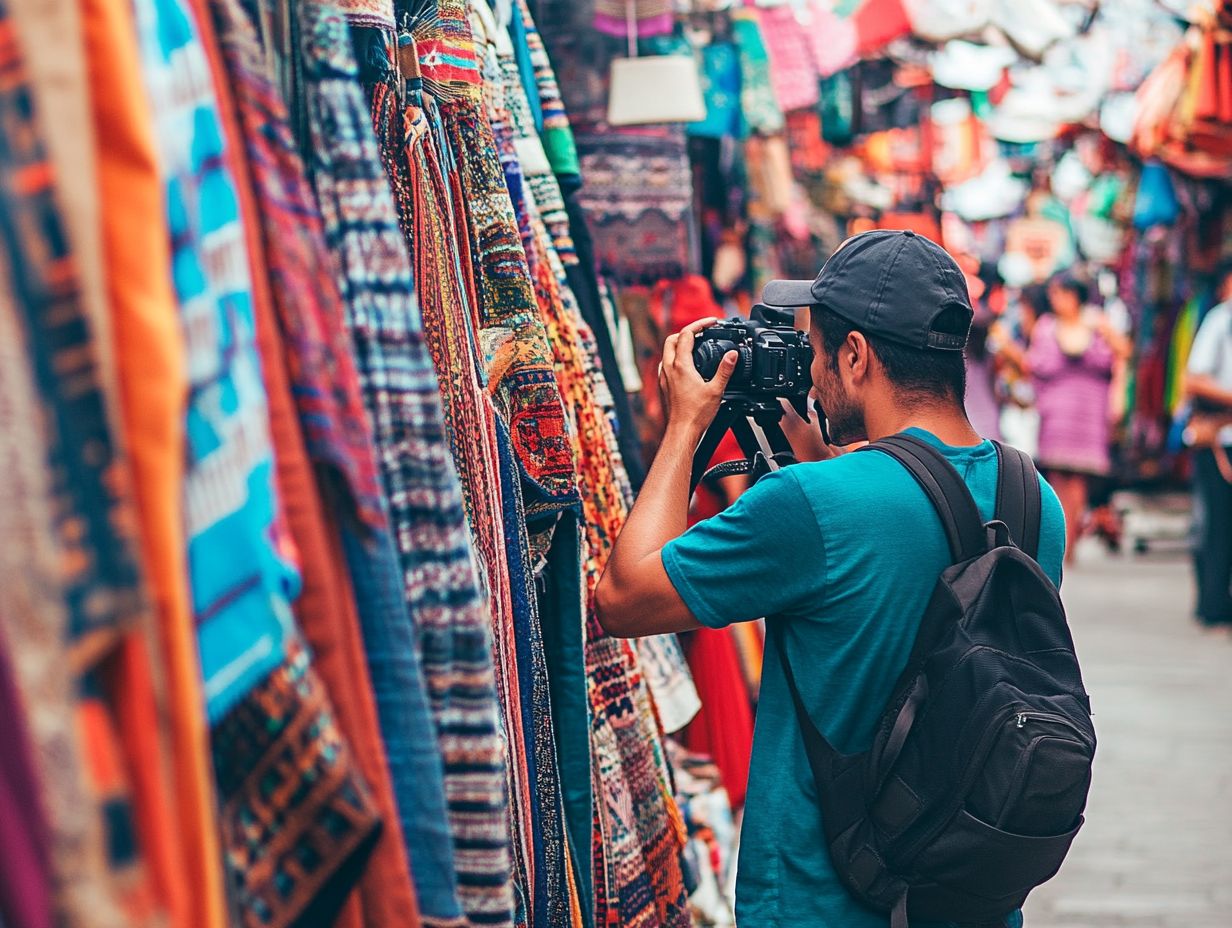
Building relationships with your subjects is essential to ethical travel photography. It allows you to capture moments that truly reflect genuine interactions and the essence of the community.
By establishing trust and obtaining your subject’s consent, you enhance the narrative integrity of your images and foster community engagement that enriches your storytelling experience.
Creating Authentic and Respectful Images
Creating authentic and respectful images demands a profound understanding of the cultural significance behind your subjects. Ensure that your photo storytelling aligns with ethical principles, representing your subjects honestly while steering clear of stereotypes. Embrace the rich nuances that diverse communities bring to the table.
To create authentic images, prioritize relationships in the community. By working together, you can gain insights that enrich your portrayal and honor the lived experiences of your subjects. Always consider the context surrounding each image, as the intent behind capturing a moment can significantly shape how it s interpreted.
Highlighting the importance of cultural sensitivity enhances the integrity of your narrative and cultivates trust. This leads to visuals that resonate deeply and show genuine respect for the stories being told.
The Role of Social Media in Ethical Travel Photography
Social media has redefined the realm of ethical travel photography. It enhances the resonance of compelling images while introducing challenges to ethical practices.
As a travel influencer, you hold considerable sway over the perception of diverse cultures. This responsibility calls for a thoughtful approach to sharing photographs that honor the integrity and dignity of your subjects.
Using Platforms Responsibly
Using social media platforms responsibly is essential for photographers aiming to share their work ethically. It allows for positive engagement with diverse audiences while honoring cultural customs and ethical responsibilities. Present your images thoughtfully, ensuring that the narrative aligns with your subjects’ realities.
Establish clear guidelines regarding consent, especially when sharing images involving individuals from various backgrounds. Engaging thoughtfully with communities, understanding their customs, and actively seeking permission before posting can foster trust and respect.
Look to those who consistently prioritize ethical practices, such as artists who amplify marginalized voices while addressing real-life issues, including those involved in volunteer trips.
By doing so, you contribute positively to social media discourse and cultivate a more responsible online presence.
In conclusion, engaging in ethical travel photography enriches both your work and the communities you photograph. Commit to transparency, respect, and cultural sensitivity to create images that tell meaningful stories.
Addressing Controversial Topics in Travel Photography
When exploring controversial topics in travel photography, balance ethical considerations with sensitivity toward vulnerable groups.
Misrepresentation can create harmful stereotypes and exploit communities. Navigate these sensitive subjects with care.
Ensure that your approach honors the dignity and complexities of the communities you document. Recognize the significant impact your work can have.
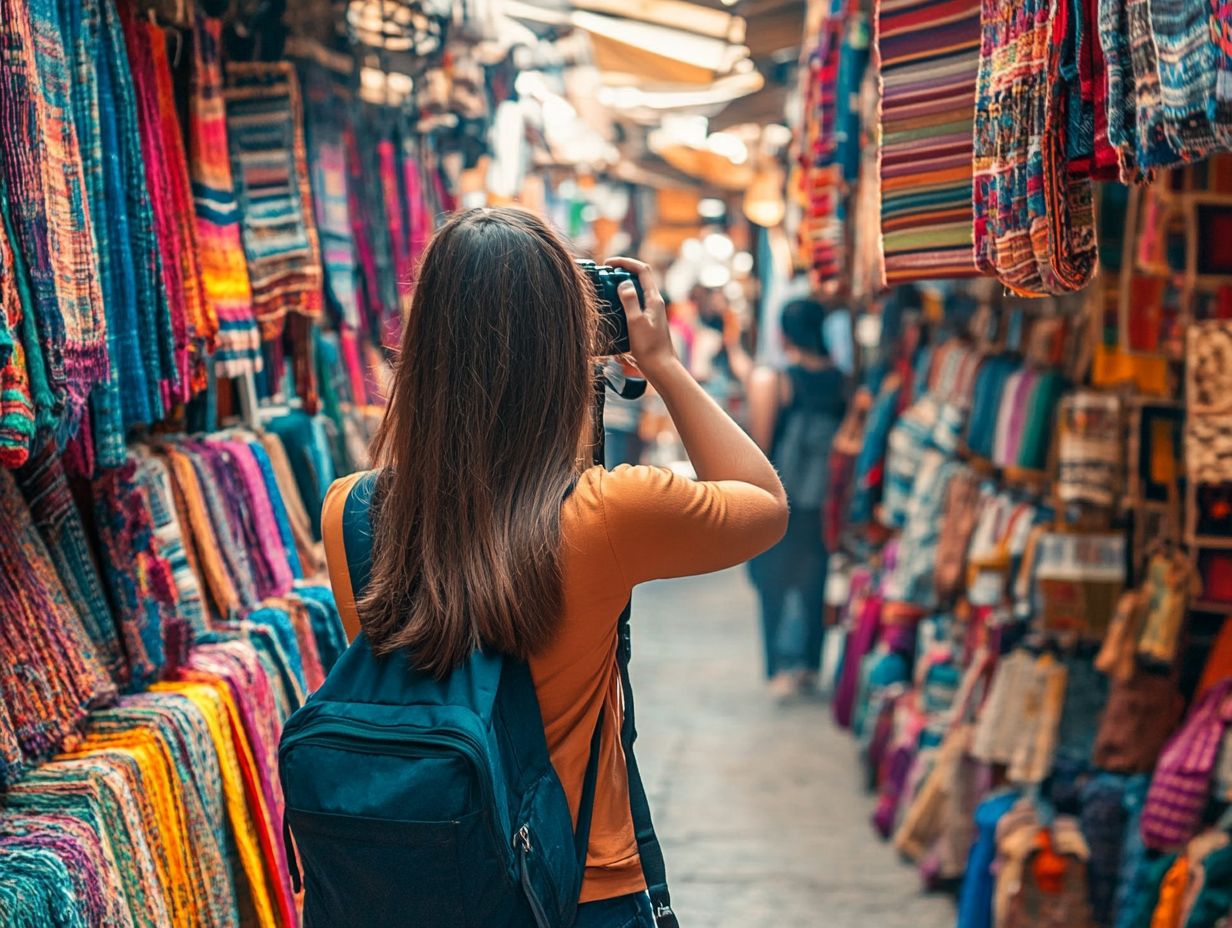
Navigating sensitive subjects in photography requires a thoughtful approach that prioritizes the preservation of dignity and respectful engagement.
By adhering to photography ethics and engaging in meaningful conversations, you can ensure that culture is represented authentically and responsibly.
To achieve this, research the background and nuances of the community you wish to portray. Building trust through open dialogue is crucial.
Take the time to get to know your subjects and understand their stories. This fosters a genuine connection.
Here are some practical tips:
- Always ask for permission before photographing someone.
- Clearly explain the purpose behind your images.
- Make sure your subjects feel comfortable and respected.
By showcasing their voices, you empower the community, leading to a more empathetic and inclusive portrayal.
Ultimately, capture the essence of a moment while honoring the humanity of those involved. Ensure that their dignity never wavers.
Promoting Positive Change through Photography
Promoting positive change through ethical photography means utilizing this powerful medium to raise awareness and showcase the strengths of local communities.
By doing so, you create a platform for ethical storytelling that nurtures empathy and understanding, highlighting the cultural significance of the narratives.
When you capture the essence of community life, you inspire social change and contribute to a wider dialogue about cultural issues.
Your lens can transform perspectives and ignite powerful narratives that foster community engagement.
Using Images to Raise Awareness and Support Local Communities
Let s harness the power of images to raise awareness and uplift local communities! Powerful visuals can tell stories that resonate deeply, provoking meaningful conversations.
Through thoughtful visual storytelling, you can highlight the strengths and challenges of a community, fostering empathy and understanding.
By employing techniques like portraiture and candid shots, you capture the essence of daily life and culture.
Creative strategies such as collaborating with local subjects and immersing yourself in their experiences enrich the stories you tell.
This approach cultivates a sense of community ownership over the imagery.
Such engagement ensures your photography acts as a bridge between the viewer and the subjects, reinforcing the connection between storytelling and social responsibility.
Frequently Asked Questions
How does ethical travel photography change our view of the world?
The power of ethical travel photography lies in its ability to educate and inspire viewers about different cultures, places, and issues.
It promotes responsible and respectful travel practices while ensuring informed consent and respecting privacy.
Why is it important to practice ethical travel photography?
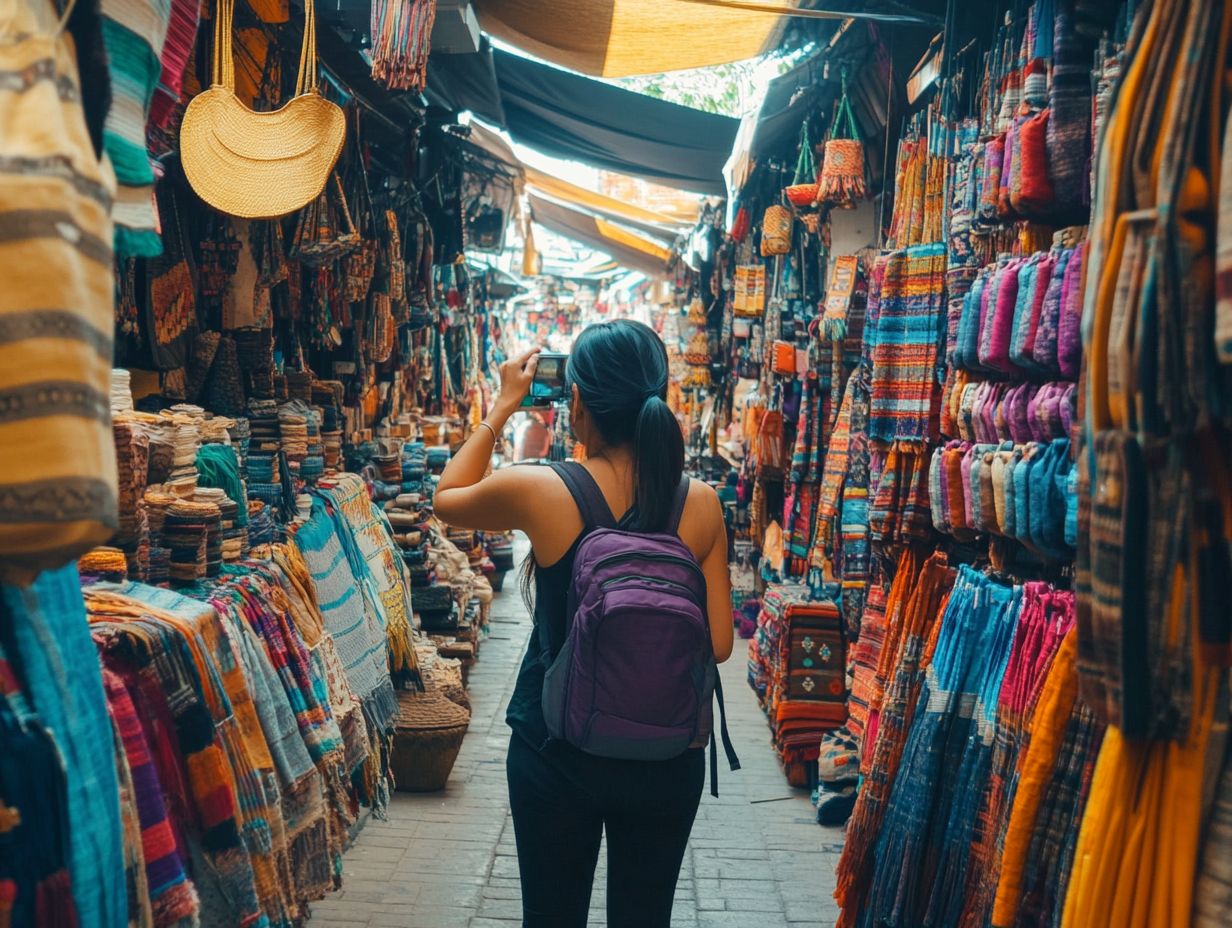
Practicing ethical travel photography ensures that the images are respectful and accurately represent the people and places. It preserves the cultural and environmental integrity of the destinations.
What are some key principles of ethical travel photography?
Key principles include asking permission before taking photos, respecting local customs, and avoiding stereotypical images. It s also important to give back to vulnerable communities.
How can ethical travel photography make a positive impact?
This photography can create awareness and understanding of cultures. It promotes sustainable travel practices and supports local economies through positive stories.
What are some common ethical issues in travel photography?
Common issues include taking photos without consent and showing local people in unfair ways. Exploiting situations for photos is also unethical.
How can I be a more ethical travel photographer?
Start your journey as a more ethical travel photographer today! Research and understand cultural sensitivities before visiting. Always obtain the subject’s consent and give back to communities through responsible tourism.

